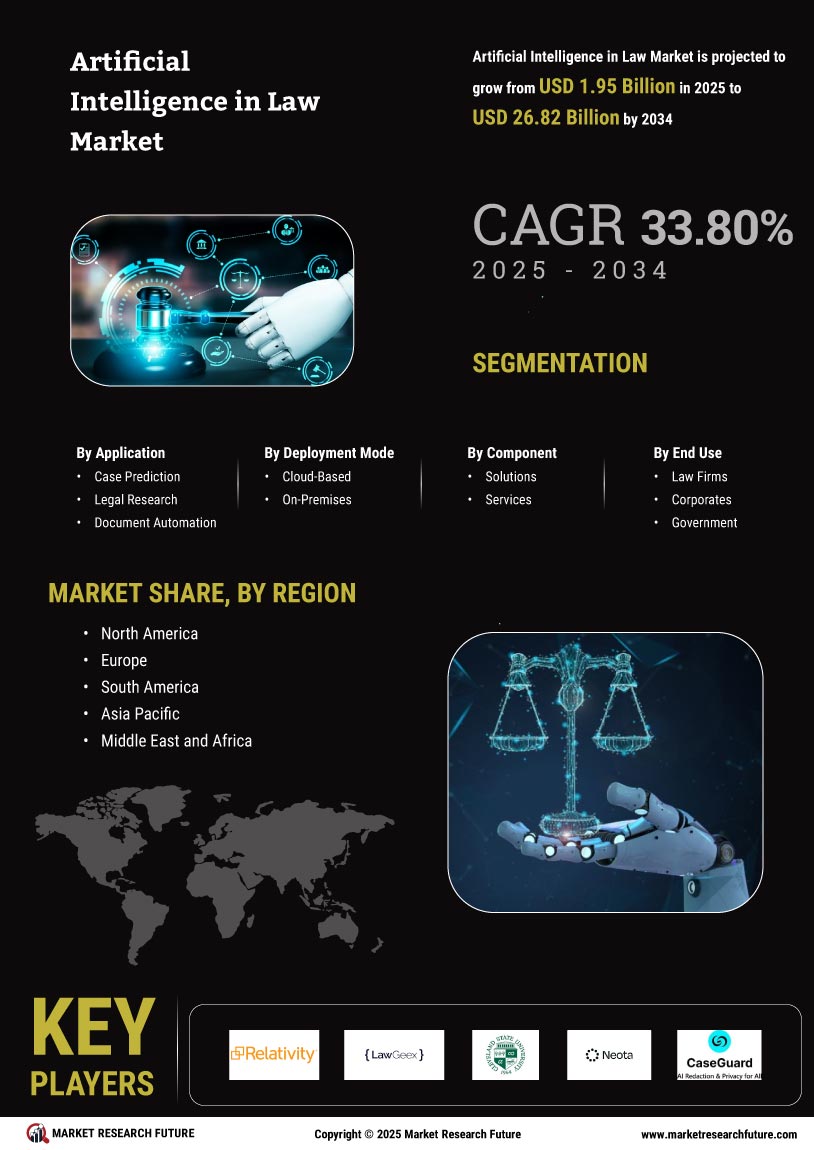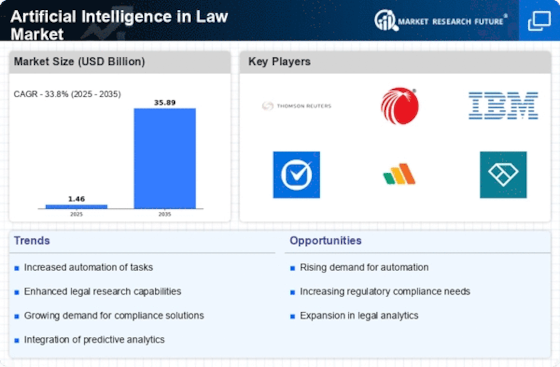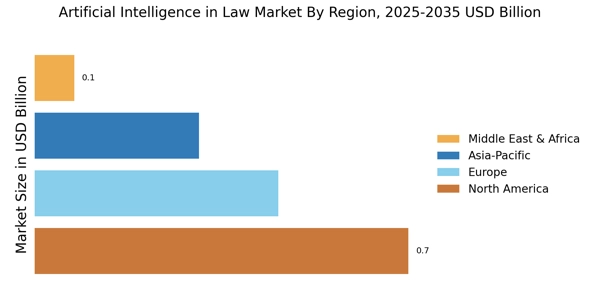Cost Reduction in Legal Services
Cost reduction is a pivotal driver in the Artificial Intelligence in Law Market. By automating routine tasks, AI technologies can significantly lower operational costs for law firms. For instance, AI-powered tools can handle tasks such as document drafting and legal research, which traditionally required substantial human resources. Reports indicate that firms utilizing AI can reduce their operational costs by approximately 30%. This financial incentive encourages more firms to adopt AI solutions, thereby expanding the market. As the legal landscape evolves, the ability to offer cost-effective services will likely become a competitive advantage for firms embracing AI.
Enhanced Efficiency in Legal Processes
The Artificial Intelligence in Law Market is witnessing a notable shift towards enhanced efficiency in legal processes. AI technologies, such as machine learning and natural language processing, are being integrated into various legal tasks, including document review and contract analysis. This integration allows law firms to process large volumes of data more swiftly, reducing the time spent on mundane tasks. According to recent estimates, AI can potentially decrease the time required for legal research by up to 70%. As firms increasingly recognize the value of these efficiencies, the demand for AI solutions in the legal sector is expected to grow, driving the market forward.
Growing Demand for Predictive Analytics
The demand for predictive analytics is emerging as a crucial driver in the Artificial Intelligence in Law Market. Legal professionals are increasingly seeking tools that can analyze historical data to forecast case outcomes and assess risks. AI-driven predictive analytics can provide insights that enhance decision-making processes, allowing lawyers to strategize more effectively. The market for predictive analytics in legal services is projected to grow significantly, with estimates suggesting a compound annual growth rate of over 25% in the coming years. This trend indicates a shift towards data-driven practices in law, further propelling the adoption of AI technologies.
Regulatory Compliance and Risk Management
Regulatory compliance and risk management are becoming increasingly complex, driving the need for advanced solutions in the Artificial Intelligence in Law Market. AI technologies can assist legal professionals in navigating the intricate landscape of regulations by automating compliance checks and identifying potential risks. This capability is particularly valuable in sectors such as finance and healthcare, where regulatory requirements are stringent. The integration of AI in compliance processes can lead to a reduction in compliance-related costs by up to 40%. As firms strive to mitigate risks and ensure compliance, the demand for AI solutions is likely to rise.
Increased Focus on Client-Centric Services
The shift towards client-centric services is a significant driver in the Artificial Intelligence in Law Market. Law firms are increasingly prioritizing client needs and expectations, leading to the adoption of AI tools that enhance client engagement and service delivery. AI can facilitate personalized communication, streamline case management, and provide clients with real-time updates on their legal matters. This focus on improving client experiences is expected to drive the growth of AI solutions in the legal sector. As firms seek to differentiate themselves in a competitive market, the integration of AI technologies to enhance client services will likely become a strategic imperative.

















